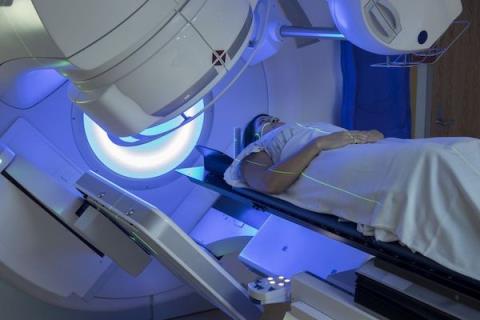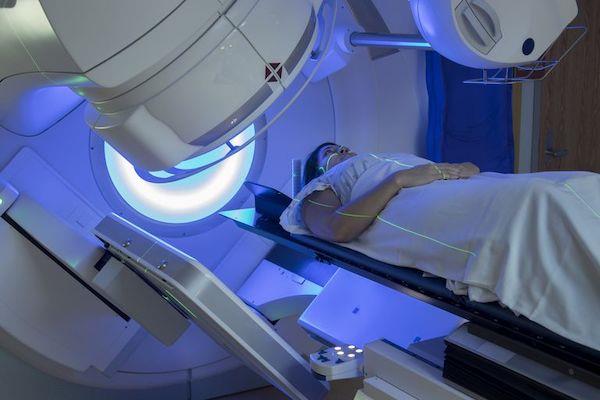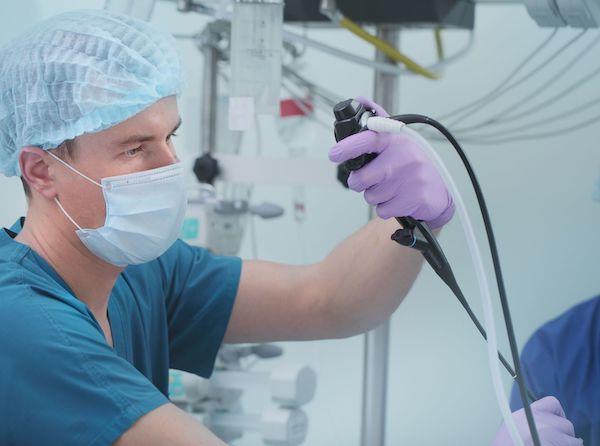Radiation enteritis: notes during treatment!

Radiation enteritis is inflammation of the intestines that occurs after radiation therapy. Radiation therapy is used in cancer treatment and often comes with many side effects, including radiation enteritis. After radiation therapy to organs such as the stomach, genitals or rectum, the radiation waves also cause inflammation of the small intestine and/or large intestine.
content
- 1. What are the types of radiation enteritis?
- 2. What symptoms does radiation enteritis cause?
- 3. Who is susceptible to this disease?
- 4. How will the doctor diagnose radiation enteritis?
- 5. Treatment and notes to avoid during treatment
- 6. How to prevent radiation enteritis?
1. What are the types of radiation enteritis?
There are two types of radiation enteritis: acute and chronic. Acute enteritis occurs when the patient is undergoing radiation therapy. The condition then persists for about eight weeks after the last course of radiation.
Meanwhile, chronic enteritis causes symptoms that persist for months to years after completion of radiation therapy. Chronic enteritis can cause complications such as anemia, diarrhea, and semi-obstruction.
2. What symptoms does radiation enteritis cause?
Possible symptoms include:
- Nausea
- Vomit
- Abdominal pain
- Frequent bowel movements
- Diarrhea
- Mucus from the rectum
- Rectal pain
- Rectal bleeding
- Weight loss
- Abdominal pain every time
3. Who is susceptible to this disease?
The following factors are associated with the risk of radiation enteritis:
- Radiation dose and duration of treatment
- Size and stage of the tumor being treated
- Area of treatment area
- Chemotherapy
- Have had stomach surgery before?
- Hypertension
- Diabetes
- Pelvic inflammatory disease or endometriosis
- Improper nutrition

Radiation therapy to the abdomen and pelvis increases the risk of radiation enteritis
The risk of radiation enteritis is increased in patients receiving radiation therapy for cancer of the abdomen and pelvis.
4. How will the doctor diagnose radiation enteritis?
Your doctor will ask about bowel problems if you suspect you have inflammatory bowel disease. Information such as the time of onset of diarrhea, how many days the symptoms last, the nature of the stool, the presence of blood in the stool, and the frequency of bowel movements are important in the diagnosis. The doctor will also ask about the patient's current diet and medications.
In addition to a physical exam and questions, your doctor will do some of the following tests to confirm the diagnosis:
- Endoscopy: A flexible tube is inserted through the mouth to help the doctor see the upper part of the small intestine.
- Colonoscopy: A flexible tube is inserted into the large intestine, allowing the doctor to see the lower part of the small intestine.
- Other imaging tests: such as a CT-scan of the abdomen or an X-ray of the abdomen to look at other organs of the digestive system.
- Capsule endoscopy: the patient swallows a small capsule that contains a camera so the doctor can see parts of the small intestine that cannot be seen by other methods.

Endoscopy of the stomach or colon helps confirm the diagnosis
5. Treatment and notes to avoid during treatment
The main goal of treatment is to relieve symptoms such as diarrhea and abdominal pain with medication and dietary changes. Treatment methods include:
- Medicines to relieve symptoms of diarrhea
- Steroids
- Strong pain relievers like hydrocodone
- Low-fat and lactose-free diet
- Antibiotics to destroy residual bacteria in the intestines
Besides, the doctor will suggest the patient to change the diet. These changes help to reduce the load and avoid irritating the already damaged digestive system.
Foods to avoid during treatment
Patients should avoid the following foods:
- Dairy products (except yogurt)
- Whole grain bread
- Oily food
- Nuts
- Nuts
- Vegetables
- Popcorn
- Highly stimulating spices or herbs
- Coffee
- Chocolate
- Wine
- Cigarette
Good foods for sick people
Including the following foods in the daily menu may provide some benefits for people with radiation enteritis:
- Fish
- Cooked chicken or other meat
- Banana
- Egg
- Apple
- White bread
- Potato
- The pasta
- Medium cooked vegetables (beans, carrots, spinach)
- Juice made from apples or grapes

Should eat foods like eggs or fish
Patients should talk to their doctor for advice on an appropriate diet to help reduce symptoms caused by the disease.
Treatment with the right dietary changes can help most patients recover. However, if the intestines are severely damaged, the doctor will recommend bowel bypass surgery. During surgery, your doctor will remove the damaged part of your intestine and join the healthy parts back together. Intestinal anastomosis is rarely used in practice.
6. How to prevent radiation enteritis?
During radiation therapy, your doctor will follow these steps to reduce your risk of inflammatory bowel disease:
- Place the patient's body in a suitable position to protect the small intestine during radiation therapy
- Radiation therapy while the patient is urinating
- Adjust the amount of radiation accordingly
Radiation enteritis often causes symptoms such as diarrhea, nausea, vomiting, and abdominal pain. People who have had radiation therapy to the abdomen, pelvis, or rectum have a higher risk of developing this condition. Therefore, if you or a loved one has risk factors and shows the above symptoms, you should see a doctor soon for advice and treatment. During treatment, you should talk to your doctor to change your diet accordingly, to help reduce discomfort caused by the disease. Hope the above article of SignsSymptomsList has provided you with the necessary information about radiation enteritis.
Doctor DAO THI THU HUONG